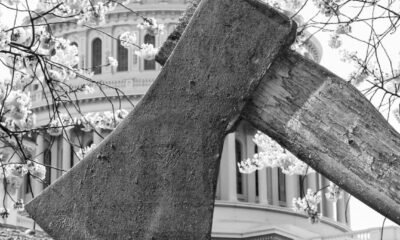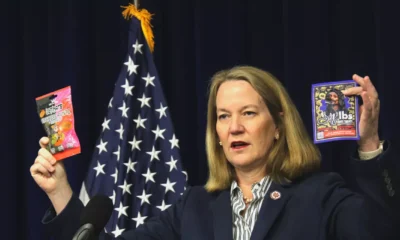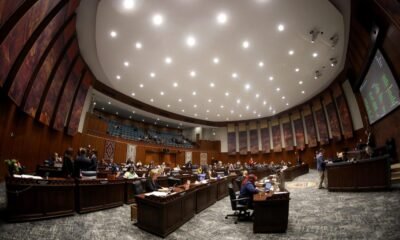ballot
Judge Crunches Numbers on Voter Decision Power for Nonpartisan Primaries Initiative

PHOENIX – The potential implementation of nonpartisan primaries in Arizona hinges on a contested ballot initiative, Proposition 140, as questions about signature validity swirl amid deadlines. With ballots scheduled for distribution this week, attorneys are focused on determining if the initiative meets legal requirements.
During a recent hearing, both supporters and opponents of Proposition 140 calculated that the initiative requires at least 383,923 valid signatures, equivalent to 15% of voters from the last gubernatorial election. Disputes have arisen over whether enough valid signatures were submitted, complicating the future of the proposition.
Challengers argue that several signatures submitted by the Make Elections Fair committee have been disqualified, citing findings from a special master which identified over 37,000 duplicate signatures. Attorney Daniel Arellano, representing the challengers, stated that the actual number of valid signatures falls short.
In defense, Proposition 140 supporters have countered that the methodology used to assess invalid signatures is flawed, according to statistical scientist Michael O’Neil. He asserts that the double counting of disqualified signatures has artificially inflated the threshold that supporters must exceed.
Travis Hunt, an attorney for the initiative’s backers, emphasized the importance of adhering to constitutional standards for signature validation. He has urged the court to recognize that, based on these standards, sufficient valid signatures exist.
However, economists brought in by the opposition maintain that regardless of the validity of the counting methods, the requirement of 383,923 signatures remains unchanged. Arellano referenced a prior Supreme Court decision that supports the double counting of invalid signatures.
Maricopa County Superior Court Judge Frank Moskowitz has been tasked with examining whether enough valid signatures exist to allow voters to weigh in on the issue. Proposition 140 proposes a significant change: it would replace the existing partisan primary system with a nonpartisan open primary, allowing all candidates to submit their names for any office, regardless of party affiliation.
The initiative would also allow the top two vote-getters to advance to the general election or enable up to five candidates, using a ranked choice voting system if necessary.
Despite submitting around 575,000 signatures, a random sample indicated that only 409,474 are valid. Further complicating matters, retired Judge Christopher Skelly found a significant number of duplicate entries that, if accepted by Moskowitz, would leave supporters without the requisite signatures.
A ruling in favor of the challengers could prevent the measure from appearing on the ballots that have already been printed. Arellano has requested that the court issue an order preventing election officials from tallying votes regarding the initiative. Conversely, Hunt argues that there’s no legal basis for such an action at this late stage.
Arizona Secretary of State Adrian Fontes voiced concerns about the situation, indicating that the printing of the ballots effectively eliminates the opportunity for challenges based on signature validity. He emphasized that invalidating votes that have already been cast would contradict constitutional provisions.
Despite this, opposition advocates argue that the ballot’s printing does not negate their challenge’s legitimacy. Arellano pointed out that accepting the current situation would encourage future delays in final rulings, enabling proponents to exploit timing advantages.
Judge Moskowitz has yet to announce when he will issue his ruling, and any decision is anticipated to lead to further appeals, potentially reaching the Arizona Supreme Court.


















